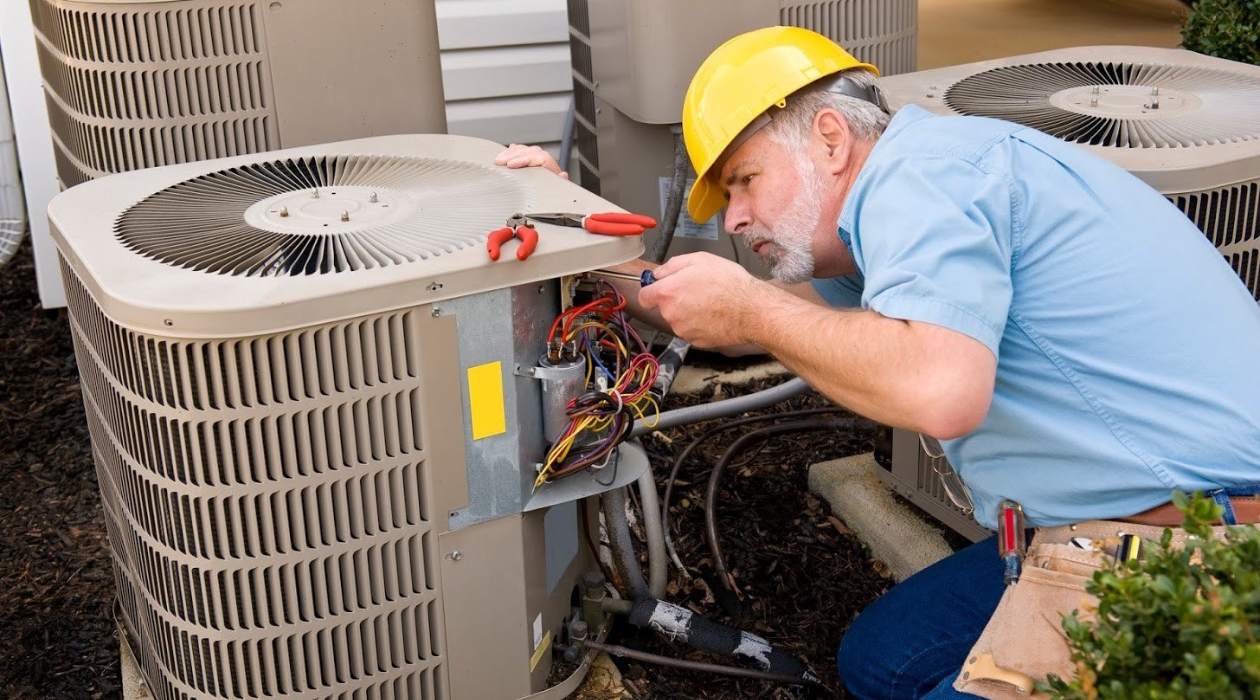

Articles
How Do I Become A HVAC Technician
Modified: December 7, 2023
Want to become an HVAC technician? Our articles cover everything you need to know to start your journey in this rewarding field.
(Many of the links in this article redirect to a specific reviewed product. Your purchase of these products through affiliate links helps to generate commission for Storables.com, at no extra cost. Learn more)
Introduction
Becoming an HVAC technician is a rewarding career choice for those interested in working with heating, ventilation, and air conditioning systems. As the demand for comfortable indoor environments continues to grow, the need for skilled technicians who can install, maintain, and repair HVAC systems is also on the rise. If you have a passion for hands-on work, problem-solving, and a desire to make a positive impact on people’s lives, a career as an HVAC technician could be the perfect fit for you.
In this article, we will explore the education and training requirements, apprenticeship programs, certification and licensing, skill development, job outlook, salary prospects, and career advancement opportunities for HVAC technicians. Whether you’re just starting out or looking to advance your career in the field, we’ll provide you with the information you need to embark on a successful HVAC technician journey.
Key Takeaways:
- Becoming an HVAC technician requires a blend of formal education, hands-on training, and continuous skill development. Certification and licensing enhance job prospects, while career advancement opportunities offer a promising professional journey.
- The HVAC industry offers a fulfilling career path with steady demand, competitive salaries, and avenues for growth. Embracing lifelong learning, specialization, and networking can lead to a successful and impactful career as an HVAC technician.
Read more: How To Become A HVAC Technician
Education and Training Requirements
To become an HVAC technician, a high school diploma or equivalent is typically the minimum educational requirement. However, it is becoming increasingly common for employers to prefer applicants with post-secondary education or formal training in HVAC technology. These programs can be found at vocational schools, community colleges, and trade schools.
HVAC training programs typically last anywhere from six months to two years, depending on the level of education and certification you are seeking. These programs cover a wide range of topics including electrical systems, refrigeration, ventilation, heating technology, troubleshooting, and safety regulations. Hands-on training is a crucial component of these programs, giving students the opportunity to gain practical experience working with different HVAC systems.
In addition to formal education, HVAC technicians must stay up-to-date with the latest industry trends and advancements. This often requires attending seminars, workshops, or taking continuing education courses. This continuous learning ensures that technicians have the knowledge and skills necessary to adapt to new technologies and provide the best service to their clients.
While formal education and training are essential, it is important to note that many HVAC technicians also acquire valuable skills through on-the-job experience and apprenticeship programs. These opportunities allow aspiring technicians to learn from experienced professionals while earning a wage. Apprenticeships typically last three to five years and combine classroom instruction with hands-on training, providing a comprehensive learning experience for future HVAC technicians.
Apprenticeship Programs
Apprenticeship programs provide a valuable pathway for individuals looking to become HVAC technicians. These programs offer a combination of on-the-job training and classroom instruction, allowing participants to gain practical experience while developing the necessary skills for the trade. Apprenticeships are typically sponsored by trade associations, unions, or HVAC companies.
During an apprenticeship, aspiring HVAC technicians work under the guidance and supervision of experienced professionals. They learn how to install, repair, and maintain various types of HVAC systems, gaining hands-on experience in real-world scenarios. Apprentices also attend classroom sessions where they learn about the theoretical aspects of the trade, such as electrical circuits, refrigeration principles, and troubleshooting techniques.
Apprenticeships generally last three to five years, depending on the program. As apprentices progress, they receive incremental wage increases to reflect their growing skills and experience. This combination of earning and learning makes apprenticeships an attractive option for individuals who prefer a practical, hands-on approach to learning.
Apart from the technical skills, apprenticeship programs also emphasize the development of important work habits and soft skills. Apprentices learn about the importance of safety protocols, professionalism, and effective communication with clients and fellow workers. This well-rounded training helps apprentices become competent technicians, prepared for the demands of the HVAC industry.
One of the main advantages of completing an apprenticeship program is the opportunity it provides for networking and job placement. Many apprentices are offered full-time employment upon completion of their program, often with the same company they trained with. This seamless transition from apprentice to full-fledged HVAC technician can jumpstart your career and provide a sense of stability and growth.
Apprenticeships offer a practical and effective way to learn the HVAC trade while earning a living. They provide a strong foundation for future career growth and can lead to higher-level positions, such as HVAC supervisor or project manager. If you are willing to put in the time and effort, an apprenticeship program can be a valuable stepping stone to a successful career as an HVAC technician.
Certification and Licensing
Obtaining certification and licensing is an important step in becoming a professional HVAC technician. While certification is not always mandatory, it can greatly enhance your job prospects and credibility in the industry. Certification demonstrates your knowledge and competence in specific areas of HVAC systems and sets you apart from non-certified individuals.
One of the most recognized certifications for HVAC technicians is the North American Technician Excellence (NATE) certification. NATE is an independent, non-profit organization that develops and promotes excellence in HVAC technicians. To earn NATE certification, technicians must pass rigorous exams that assess their knowledge and skills in areas such as installation, maintenance, and service of HVAC systems.
Another widely recognized certification is the Environmental Protection Agency (EPA) certification. Technicians who work with refrigerants are required to obtain EPA certification in order to handle, recover, and dispose of refrigerants in a safe and environmentally friendly manner. The certification levels include Type I, Type II, Type III, and Universal, depending on the specific refrigerants and systems a technician will work with.
In addition to these certifications, some HVAC technicians may choose to pursue specialty certifications to enhance their expertise in certain areas. Examples of specialty certifications include HVAC load calculation, duct design, and air balancing. These certifications demonstrate a technician’s advanced knowledge and skills in specific aspects of HVAC systems.
Licensing requirements for HVAC technicians can vary by state and municipality. Some jurisdictions may require HVAC technicians to obtain a license to work independently or operate their own business. Licensing typically involves meeting certain education and experience requirements and passing a licensing exam. It is important to research and understand the licensing requirements in your area to ensure compliance with local regulations.
Certification and licensing not only showcase your expertise and professionalism but also provide reassurance to clients and employers that you have the necessary skills to handle their HVAC needs. By pursuing certifications and licenses, you can boost your credibility, improve your employability, and open doors to more advanced career opportunities in the HVAC industry.
Consider enrolling in a trade school or apprenticeship program to gain hands-on experience and technical knowledge. Look for opportunities to obtain industry certifications to enhance your skills and marketability.
Skill Development
Skill development is an ongoing process for HVAC technicians as the industry continually evolves and new technologies emerge. To excel in this field, it is essential to continuously enhance your skills and stay updated with the latest industry trends. Here are some key areas of skill development for HVAC technicians:
Technical Proficiency: HVAC technicians should have a strong understanding of heating, ventilation, and air conditioning systems. This includes knowledge of electrical circuits, refrigeration principles, airflow dynamics, and troubleshooting techniques. Continuously enhancing technical proficiency through training programs, workshops, and self-study is crucial to stay up-to-date with advancements in HVAC technology.
Diagnostic Skills: HVAC technicians must be skilled in diagnosing and identifying problems with HVAC systems. This involves using tools and instruments to test components, analyze system performance, and pinpoint issues. Developing strong diagnostic skills allows technicians to quickly and accurately identify the root cause of problems, leading to efficient repairs and maintenance.
Problem-Solving Abilities: HVAC technicians often encounter complex problems that require innovative solutions. Developing strong problem-solving abilities, including critical thinking and logical reasoning, enables technicians to tackle challenges effectively. This skill is honed through practical experience, training, and continuously seeking opportunities to improve problem-solving techniques.
Communication Skills: Good communication skills are essential for HVAC technicians to effectively interact with clients, colleagues, and other professionals. Technicians must be able to explain technical concepts in simple terms, listen attentively to clients’ concerns, and provide clear instructions. Developing communication skills can be achieved through practice, feedback, and attending communication-focused workshops or courses.
Time Management: Being able to manage time efficiently is vital in the HVAC industry, where technicians often juggle multiple projects and service calls. Developing effective time management skills allows technicians to prioritize tasks, meet deadlines, and provide efficient and timely service to clients.
Continuing Education: As mentioned earlier, the HVAC industry is constantly evolving. Technicians must actively seek opportunities for continuing education to stay updated on new technologies, industry standards, and regulations. This can be achieved through attending seminars, workshops, and industry conferences, as well as pursuing advanced certifications or specialized training programs.
By focusing on skill development, HVAC technicians can enhance their expertise, provide excellent service to clients, and increase their career opportunities. Embracing a lifelong learning mindset and consistently seeking ways to improve and expand skills will set technicians apart in this dynamic field.
Job Outlook and Salary
The job outlook for HVAC technicians is promising, with a steady demand for skilled professionals in the industry. As buildings become more technologically advanced and energy-efficient, the need for HVAC systems and technicians to install, maintain, and repair these systems continues to grow.
According to the U.S. Bureau of Labor Statistics (BLS), the employment of HVAC technicians is projected to grow 4 percent from 2019 to 2029, about as fast as the average for all occupations. This growth can be attributed to several factors, including the need to replace older systems, increase energy efficiency, and meet new environmental regulations.
HVAC technicians who have completed formal education or apprenticeship programs and obtained certifications will have better job prospects. Additionally, those with experience working with advanced technologies, such as smart HVAC systems and renewable energy systems, may also have an advantage in the job market.
As for the salary potential, HVAC technicians can earn a competitive income. The median annual wage for HVAC technicians was $50,590 in May 2020, according to the BLS. The lowest 10 percent earned less than $31,910, while the highest 10 percent earned more than $77,920. Factors such as geographic location, level of experience, specialized skills, and industry demand can impact the earning potential of HVAC technicians.
It’s important to note that HVAC technicians may experience seasonal fluctuations in employment, with increased demand during peak seasons for heating and cooling. However, technicians who offer services for both residential and commercial clients may have a more stable workload throughout the year.
Besides traditional employment, some HVAC technicians may choose to work as independent contractors or start their own HVAC businesses. This provides the opportunity for greater control over work schedules, client base, and potentially higher earning potential. However, it also comes with additional responsibilities, such as managing finances and acquiring new clients.
Overall, the job outlook for HVAC technicians is positive, with steady demand, competitive salaries, and opportunities for career growth. By staying updated with industry advancements, obtaining certifications, and continuously improving their skills, HVAC technicians can position themselves well in this evolving and rewarding field.
Career Advancement Opportunities
For HVAC technicians, there are several avenues for career advancement and professional growth. As you gain experience and expertise in the field, you can explore opportunities to enhance your skills, broaden your scope of practice, and take on more challenging roles. Here are some potential career advancement opportunities for HVAC technicians:
Specialization: One way to advance your career is to specialize in a specific area of HVAC systems. This can include focusing on residential or commercial HVAC systems, specializing in refrigeration systems, or becoming an expert in energy-efficient and sustainable HVAC technologies. By becoming a specialist, you can differentiate yourself in the market and potentially command higher salaries.
Supervisory Roles: With experience and leadership skills, you can move into supervisory or management positions. In these roles, you will oversee a team of HVAC technicians, manage projects, coordinate schedules, and ensure quality control. Supervisory roles provide opportunities to mentor and train junior technicians while also being involved in decision-making processes.
Sales and Consulting: As an experienced HVAC technician, you may choose to transition into sales or consulting roles. In these positions, you can use your technical knowledge to advise clients on HVAC system upgrades, energy-efficient solutions, and equipment selection. Sales and consulting roles allow you to work closely with clients, develop relationships, and contribute to the overall growth of the HVAC industry.
Business Ownership: Some HVAC technicians aspire to start their own HVAC businesses. By establishing your own company, you have the flexibility to set your own schedule, choose your clients, and potentially increase your earning potential. However, running a business requires additional skills beyond technical expertise, such as marketing, finance, and management.
Ongoing Education: Pursuing further education and advanced certifications can also open doors for career advancement. You may consider obtaining higher-level certifications, such as Certified HVAC Professional (CHP) or Certified Energy Manager (CEM), to demonstrate your expertise in the industry. Additionally, you can take advantage of continuing education opportunities to stay updated on new technologies and industry trends.
Industry Associations and Networking: Joining industry associations and participating in networking events can provide valuable opportunities for career advancement. These platforms allow you to connect with other professionals in the field, learn from their experiences, and gain visibility within the industry. Professional networking can also lead to job referrals, partnerships, and mentorship opportunities.
Remember that career advancement is a combination of continuous learning, skill development, and seizing opportunities. By staying proactive, networking with industry professionals, and embracing new challenges, you can progress in your HVAC career and achieve your professional goals.
Conclusion
Becoming an HVAC technician is a fulfilling and promising career choice for those with a passion for heating, ventilation, and air conditioning systems. Through a combination of education, training, certifications, and practical experience, individuals can embark on a journey to become skilled professionals in the field.
In this article, we explored the education and training requirements necessary to become an HVAC technician. We discussed the importance of formal education, apprenticeship programs, and continuous skill development. Certification and licensing were also highlighted as valuable credentials that showcase a technician’s expertise and professionalism.
Moreover, we discussed the job outlook for HVAC technicians, pointing out the steady growth in demand for skilled professionals in the industry. The salary potential of HVAC technicians was examined, considering factors such as experience, location, and industry specialization.
Additionally, we explored the various career advancement opportunities available for HVAC technicians. From specialization and supervisory roles to sales and consulting, technicians can progress in their careers by expanding their skillset and taking on new challenges. Pursuing further education and getting involved in industry associations and networking events were also outlined as pathways to career advancement.
In conclusion, becoming an HVAC technician is not only a rewarding career but also a field with ample opportunities for growth and professional development. By acquiring the necessary knowledge, skills, certifications, and staying ahead of industry trends, HVAC technicians can thrive in this in-demand field.
Whether you’re just starting out or looking to advance your career, the HVAC industry offers the potential for a fulfilling and successful professional journey. With the right skills, dedication, and a passion for the trade, you can make a significant impact on people’s lives by ensuring their comfort and well-being through well-functioning HVAC systems.
Frequently Asked Questions about How Do I Become A HVAC Technician
Was this page helpful?
At Storables.com, we guarantee accurate and reliable information. Our content, validated by Expert Board Contributors, is crafted following stringent Editorial Policies. We're committed to providing you with well-researched, expert-backed insights for all your informational needs.

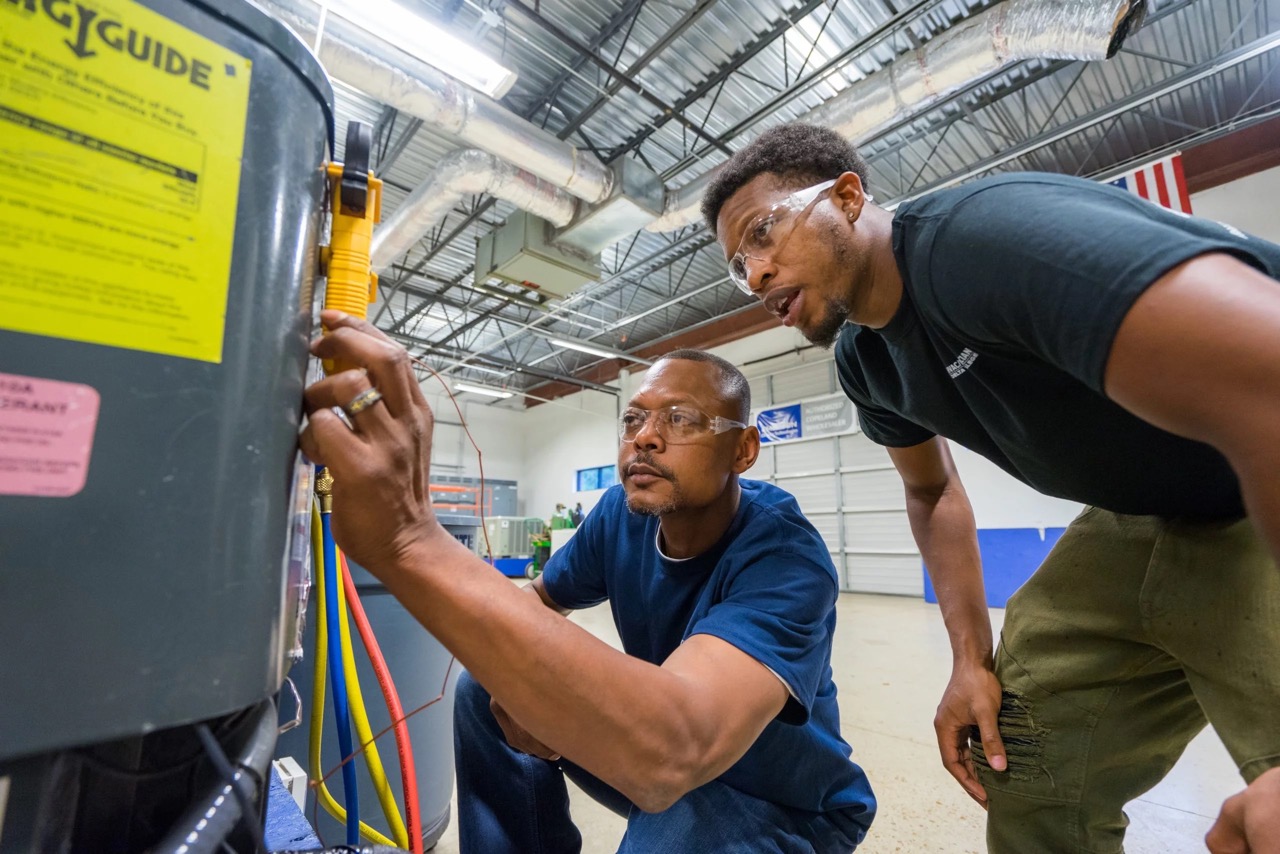


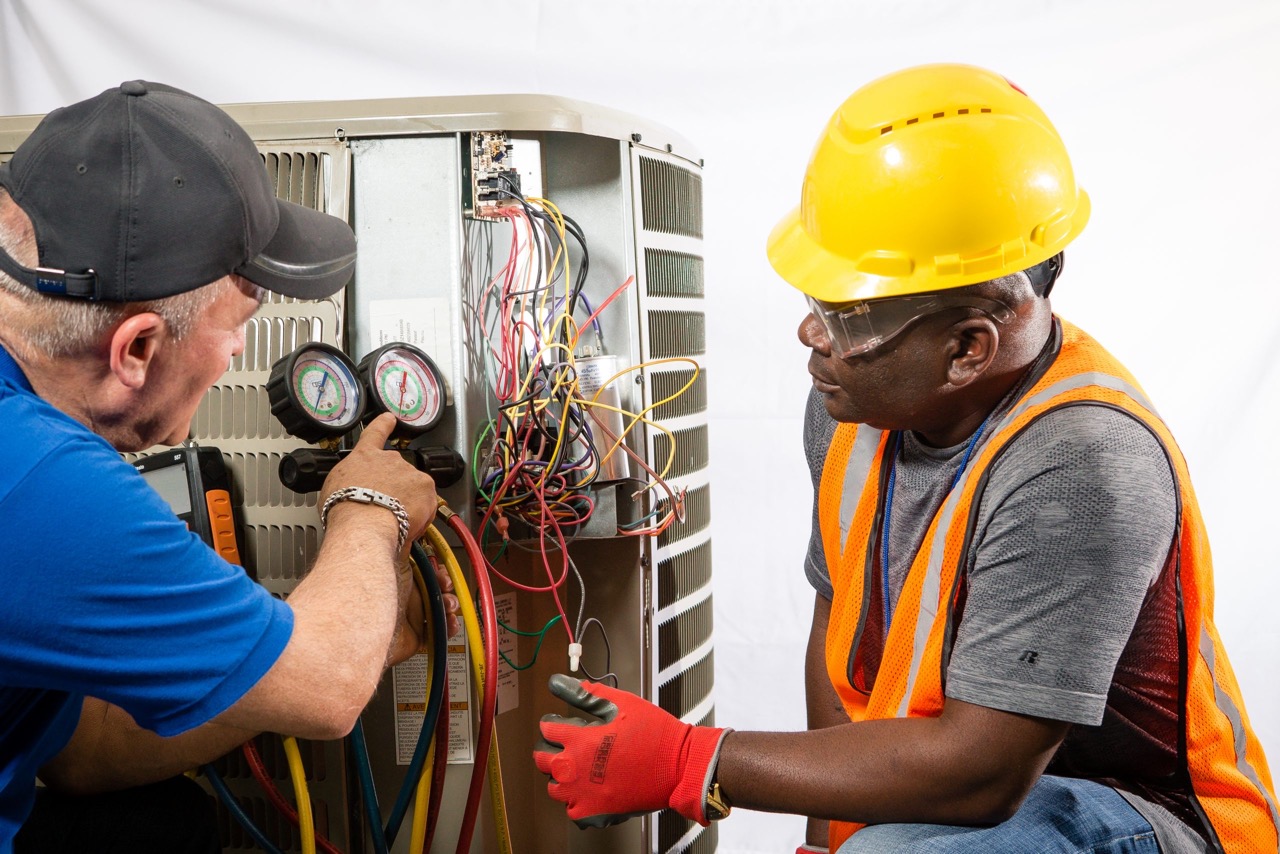
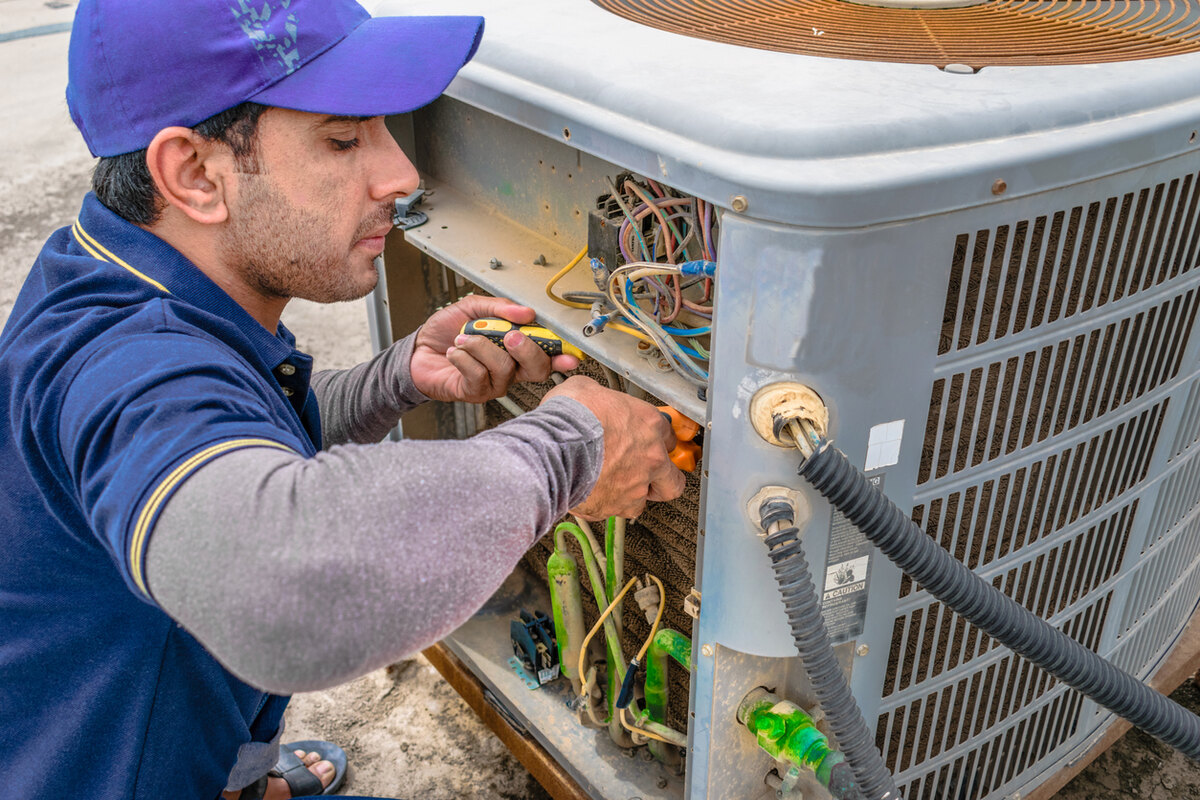

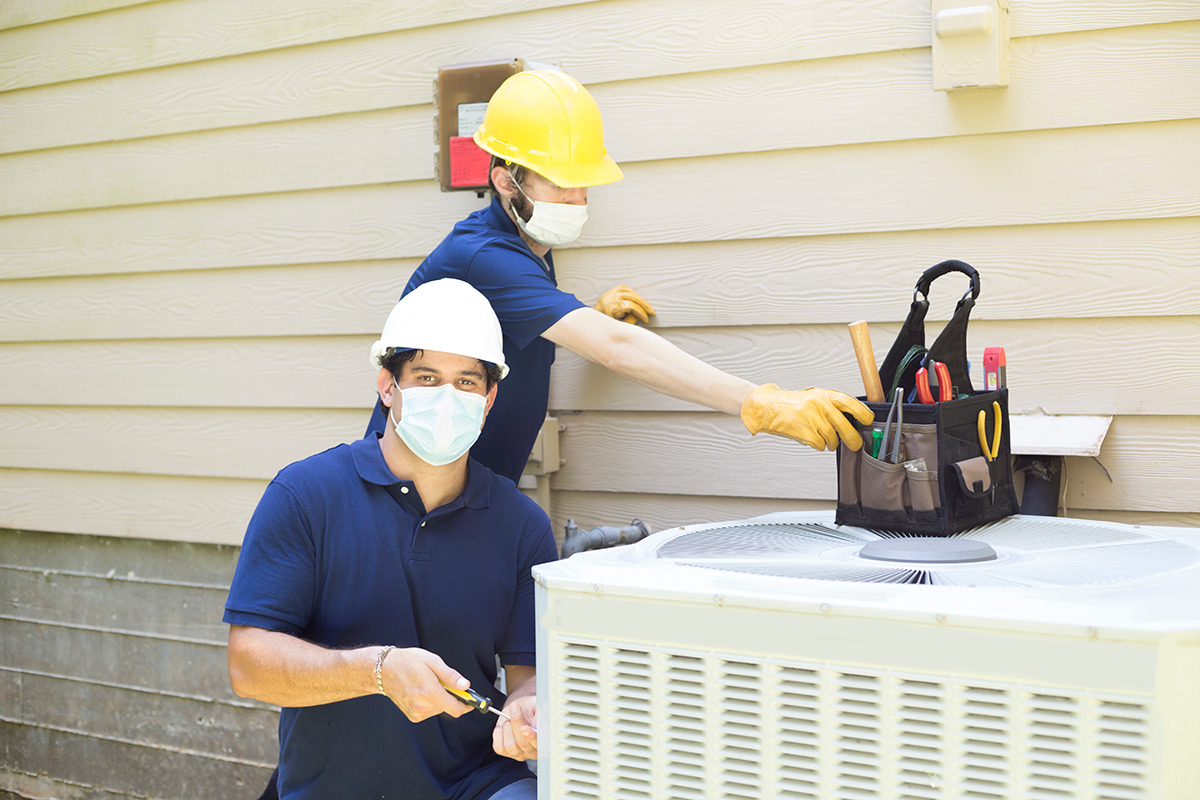
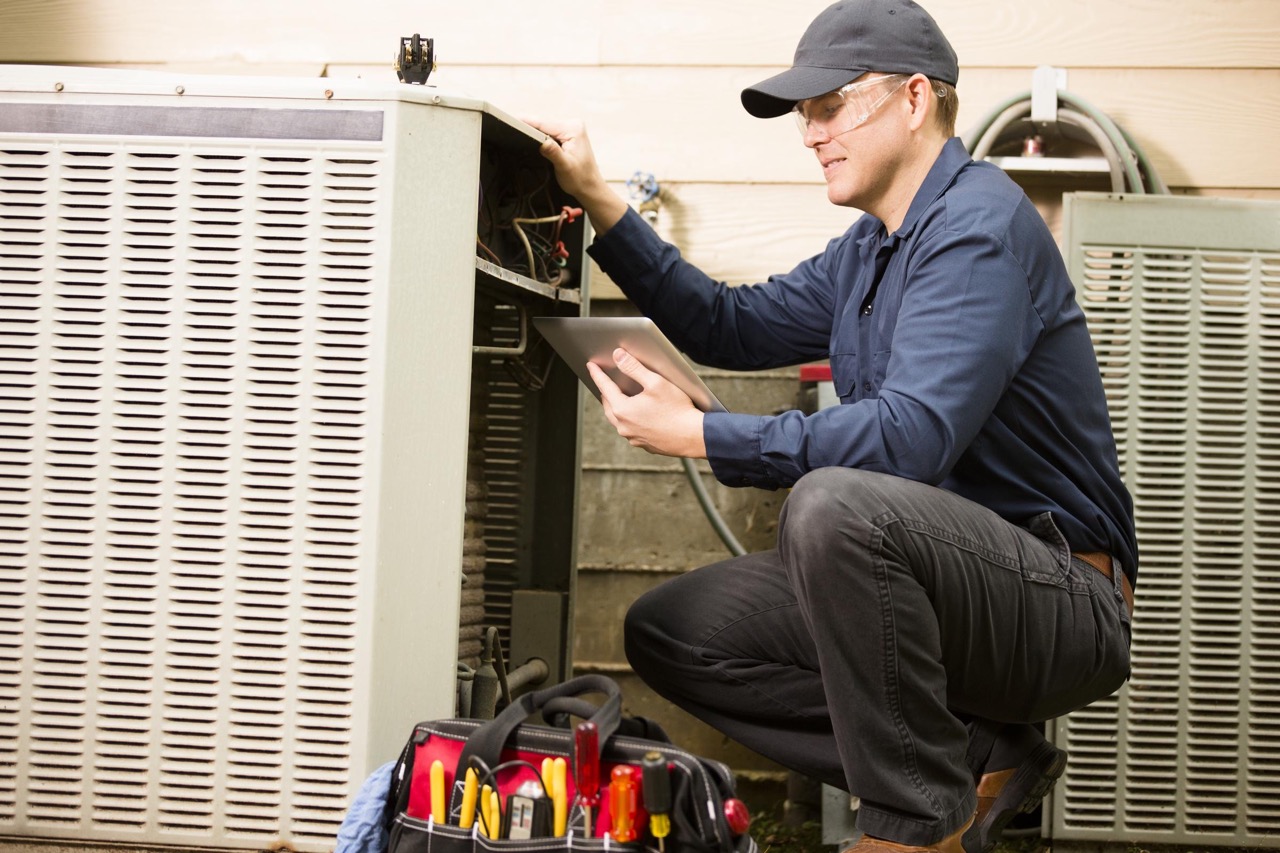

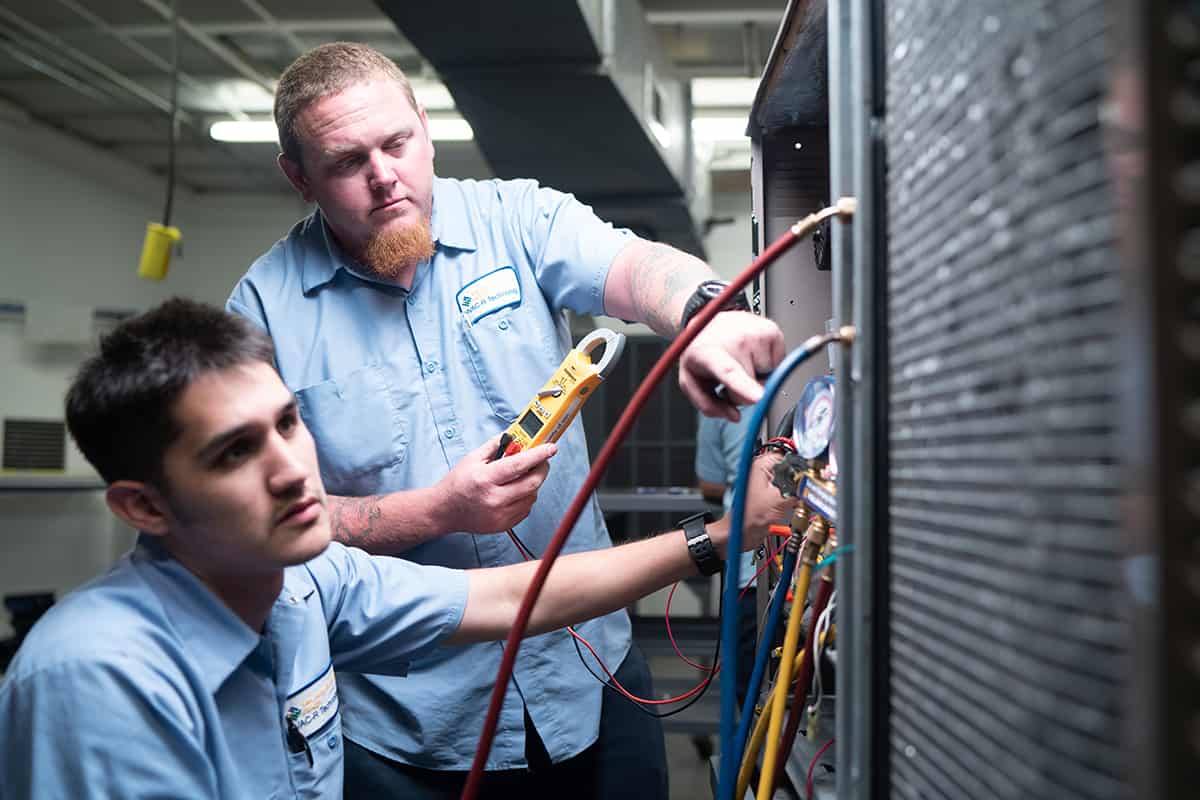
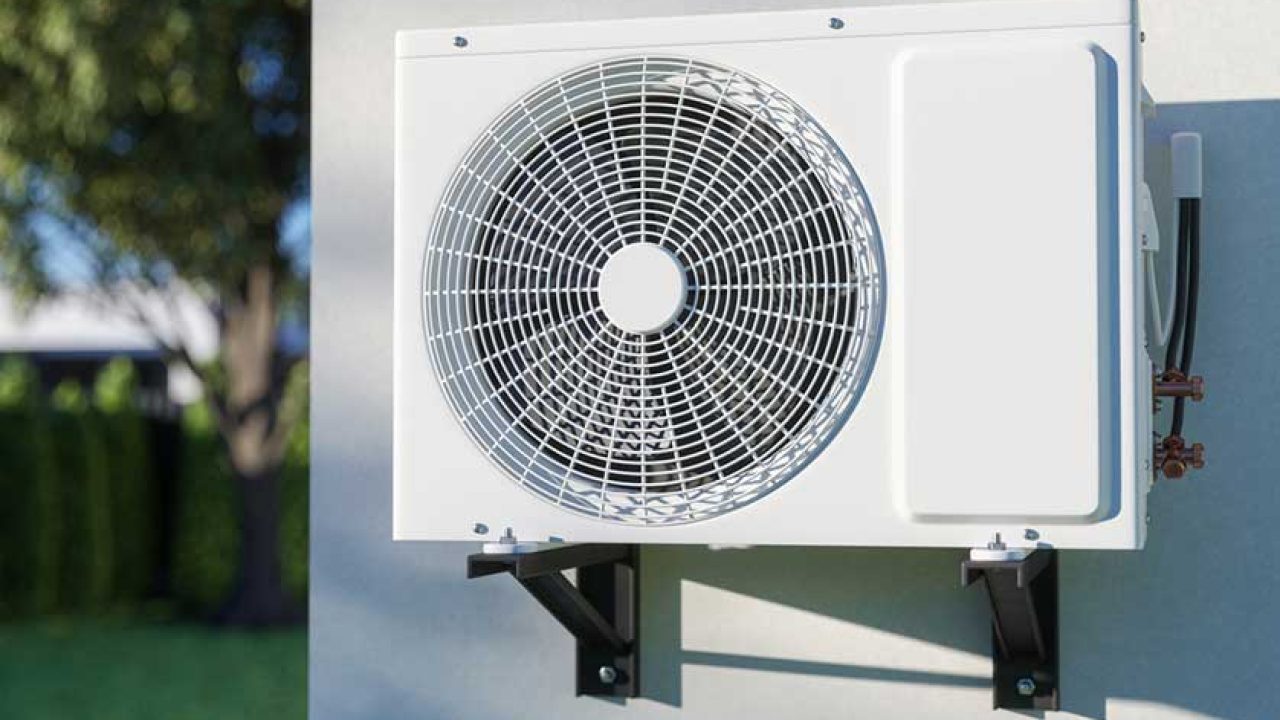
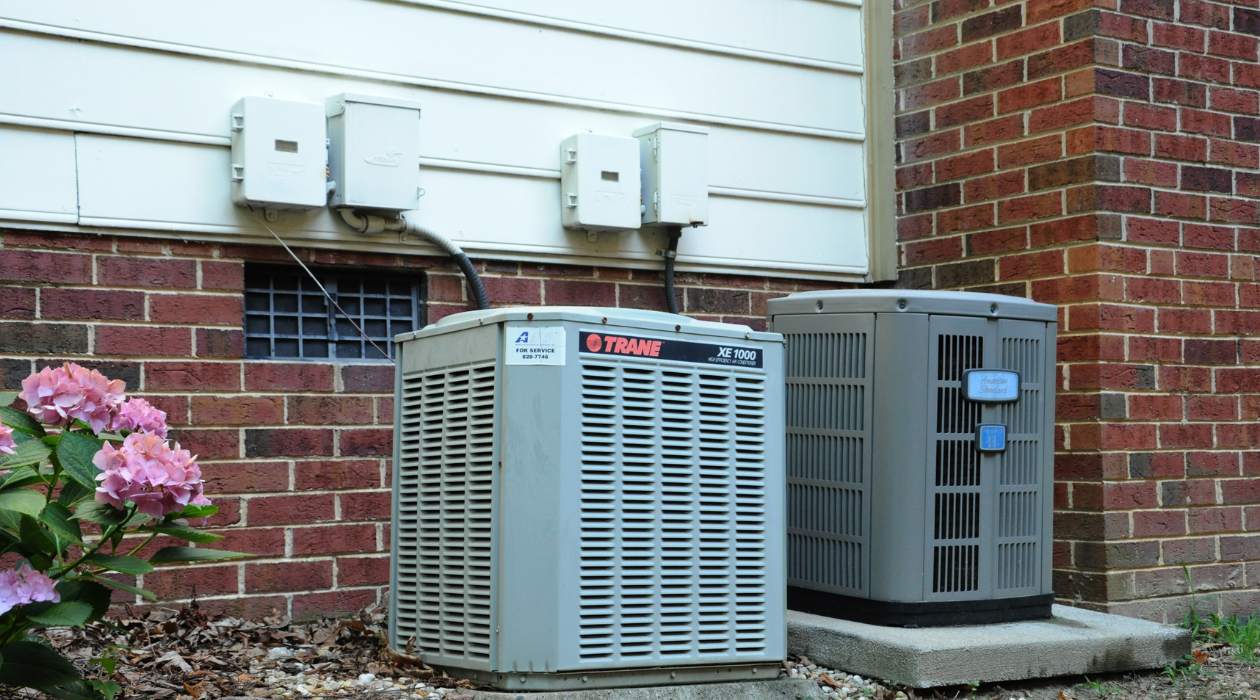
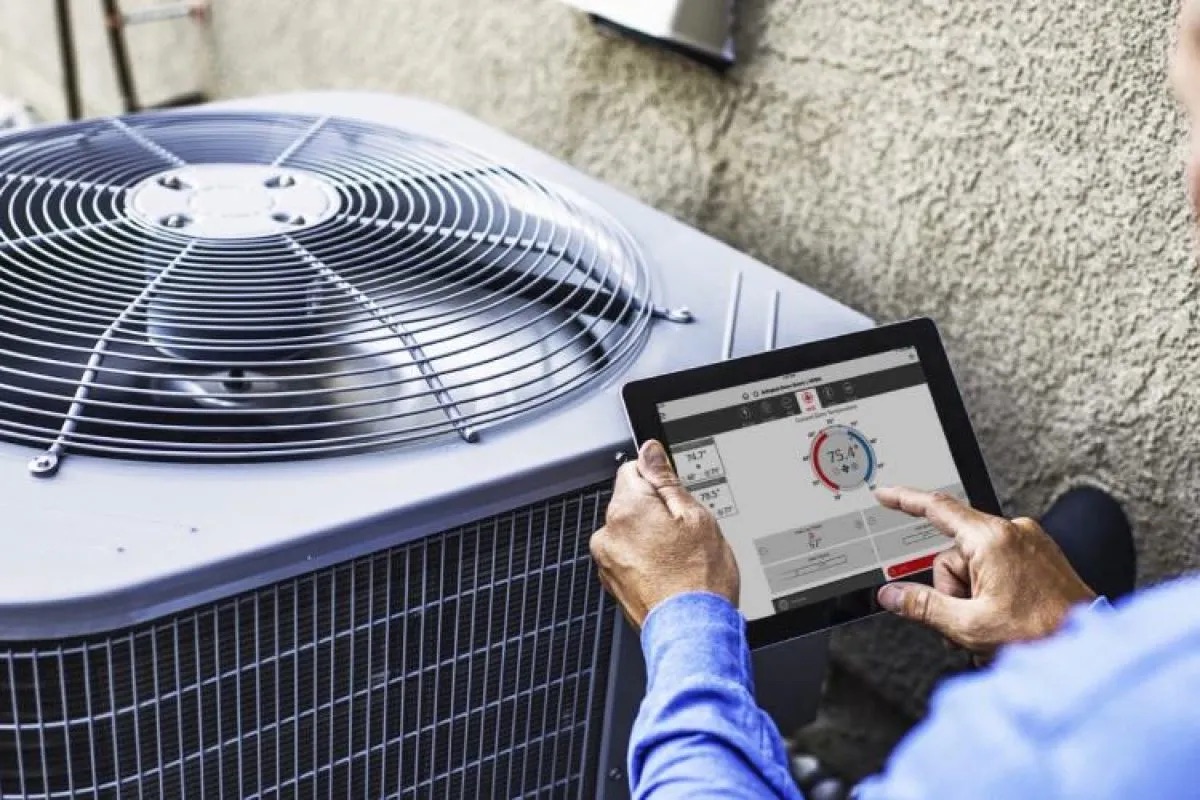

0 thoughts on “How Do I Become A HVAC Technician”